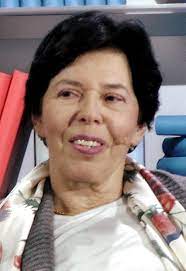Beck-Gernsheim, Elizabeth

Bio: (1946-) German sociologist and psychologist. Elizabeth Beck-Gernsheim completed her studies and doctorate at the University of Munich, and today she teaches at the University of Erlangen-Nuremberg. She studies social changes, especially those that take place in the institution of the family. Beck-Gernsheim believes that modernity has led to increased individualization and greater freedom of individual choice, which has had a major impact on changes in family life. Protestant ethics, increased social and geographical mobility, increased levels of education, improved working class economic conditions, and urbanization and secularization processes have contributed to increasing individualization and freedom of choice. Individuals today are far less limited by traditional rules in choosing their family roles, but, on the other hand, there has been a weakening of the support and security provided by the traditional community. The nuclear family has thus become a place of security and protection from the impersonal and dangerous outside world. The love relationships of the spouses in the nuclear family, which express and fulfill the individuality of both parties, create a new form of security. Individuality and the search for love have created many non-traditional forms of marriage, relationships, and families.
Difficulties in career development under capitalism and the disappearance of traditional gender roles (both at work and in the household) are the source of the biggest family conflicts. The traditional family will not disappear, but family life is becoming more complex, so different forms of interpersonal association are emerging, sexual life is being separated from biological reproduction, women are in a better position, and same-sex relationships are growing and becoming more socially accepted. Beck-Gernsheim published several books in cooperation with her husband Ulrich Beck.
Main works
Das halbierte Leben (1980);
Vom Geburtenreckgang zum ganz normalen Leben (1984);
Die Kinderfrage (1988);
Das ganz normale Chaos der Liebe (1990);
Welche Gesundheit wollen wir?: Dilemmata des medizintechnischen Fortschritts (1995);
The Social Implications of Bioengineering (1995);
Was kommt nach der Familie? (2000);
Reinventing the Family: in Search of New Lifestyles (2002);
Individualization: Institutionalized Individualism and its Social and Political Consequences (2002);
Die Kinderfrage heute: Über Frauenleben, Kinderwunsch und Geburtenrückgang (2006);
Was kommt nach der Familie? Alte Leitbilder und neue Lebensformen (2010);
Distant Love (2012).

